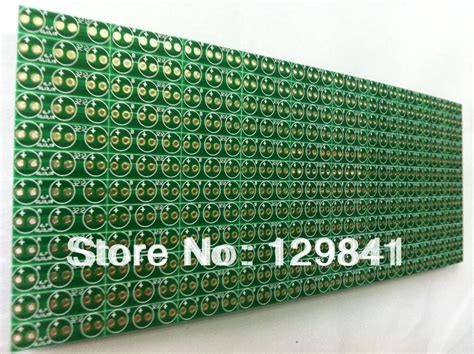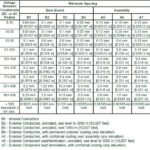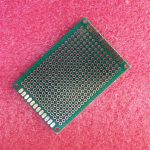Introduction to PCB Small-Quantity Manufacturing
Printed Circuit Boards (PCBs) are essential components in modern electronic devices, ranging from smartphones and computers to industrial equipment and medical devices. While mass production of PCBs is common for large-scale projects, small-quantity PCB manufacturing is equally important for prototyping, testing, and low-volume production runs. RAYMING, a leading PCB manufacturer, excels in providing high-quality PCB small-quantity manufacturing services to meet the diverse needs of its clients.
Benefits of PCB Small-Quantity Manufacturing
Small-quantity PCB manufacturing offers several advantages for businesses and individuals:
- Cost-effective prototyping: Producing small quantities of PCBs allows for cost-effective prototyping and testing of new designs before committing to large-scale production.
- Faster turnaround times: Small-quantity orders typically have shorter lead times, enabling quicker iterations and faster time-to-market for new products.
- Flexibility in design changes: With small-quantity manufacturing, design changes can be implemented more easily without incurring significant costs or delays.
- Reduced inventory risk: Producing smaller quantities of PCBs minimizes the risk of holding excess inventory, especially for products with uncertain demand or short life cycles.
RAYMING’s Expertise in PCB Small-Quantity Manufacturing
Advanced Manufacturing Capabilities
RAYMING has invested in state-of-the-art manufacturing equipment and processes to ensure the highest quality PCBs, even for small-quantity orders. Some of the key capabilities include:
- High-precision drilling and routing: RAYMING uses advanced CNC machines to achieve precise drilling and routing, ensuring accurate and consistent hole sizes and trace widths.
- Multi-layer PCB fabrication: The company can produce PCBs with up to 24 layers, enabling the manufacturing of complex and high-density designs.
- Diverse material options: RAYMING offers a wide range of PCB materials, including FR-4, high-frequency laminates, and flexible substrates, to meet specific application requirements.
Stringent Quality Control
To ensure the highest quality standards, RAYMING implements rigorous quality control measures throughout the manufacturing process:
- Automated optical inspection (AOI): AOI systems are used to detect and identify defects, such as shorts, opens, and incorrect component placement.
- Electrical testing: PCBs undergo comprehensive electrical testing to verify functionality and adherence to specifications.
- Visual inspection: Skilled technicians perform visual inspections to identify any cosmetic defects or workmanship issues.
Quick Turnaround Times
RAYMING understands the importance of fast turnaround times for small-quantity orders. The company has optimized its processes to minimize lead times without compromising quality:
- Streamlined order processing: RAYMING’s efficient order management system ensures that small-quantity orders are processed quickly and accurately.
- Priority scheduling: Small-quantity orders are given priority in production scheduling to minimize waiting times.
- Expedited shipping options: RAYMING offers expedited shipping options to ensure that PCBs reach clients as quickly as possible.
PCB Small-Quantity Manufacturing Process at RAYMING
Step 1: Design Review and Optimization
Before starting production, RAYMING’s experienced engineers review the PCB design files to identify any potential issues and suggest improvements. This step helps to optimize the design for manufacturability, reliability, and cost-effectiveness.
Step 2: Material Selection and Procurement
Based on the client’s requirements and the PCB design, RAYMING selects the appropriate materials, such as laminates, copper foils, and solder masks. The company maintains a well-stocked inventory of commonly used materials to minimize lead times for small-quantity orders.
Step 3: PCB Fabrication
The PCB fabrication process involves several sub-steps:
- Imaging: The PCB design is transferred onto the copper-clad laminate using high-resolution photolithography.
- Etching: Unwanted copper is removed using a chemical etching process, leaving behind the desired circuit pattern.
- Drilling: Holes are drilled through the PCB using high-precision CNC machines to accommodate components and vias.
- Plating: The holes are electroplated with copper to establish electrical connections between layers.
- Solder mask application: A protective solder mask is applied to the PCB surface to prevent short circuits and improve solderability.
- Silkscreen printing: Component labels, logos, and other markings are printed onto the PCB using silkscreen printing.
Step 4: Assembly (Optional)
If required, RAYMING can also provide PCB assembly services for small-quantity orders. This includes component sourcing, automated and manual assembly, and soldering.
Step 5: Quality Control and Testing
As mentioned earlier, RAYMING conducts thorough quality control and testing procedures to ensure that each PCB meets the highest standards of quality and reliability.
Step 6: Packaging and Shipping
Once the PCBs have passed all quality checks, they are carefully packaged to protect them during shipping. RAYMING offers various shipping options, including expedited services for urgent orders.

PCB Small-Quantity Manufacturing Applications
Small-quantity PCB manufacturing finds applications across various industries and sectors:
- Prototype development: Small-quantity PCBs are essential for developing and testing new product prototypes in industries such as consumer electronics, automotive, and medical devices.
- Research and development: Universities, research institutions, and R&D departments rely on small-quantity PCBs for experimental setups and proof-of-concept designs.
- Hobby and personal projects: Hobbyists, students, and DIY enthusiasts often require small quantities of PCBs for their personal projects and learning experiences.
- Low-volume production: Some niche products or specialized equipment may have low-volume production requirements, making small-quantity PCB manufacturing an ideal solution.
Choosing RAYMING for Your PCB Small-Quantity Manufacturing Needs
When selecting a PCB manufacturer for your small-quantity needs, consider the following factors that set RAYMING apart:
- Experience and expertise: With years of experience in the PCB industry, RAYMING has the knowledge and skills to handle complex designs and challenging requirements.
- Advanced technology: RAYMING invests in the latest manufacturing equipment and processes to ensure the highest quality PCBs.
- Comprehensive services: From design review to assembly and testing, RAYMING offers a complete range of services to support your small-quantity PCB needs.
- Competitive pricing: RAYMING provides competitive pricing for small-quantity orders without compromising on quality or service.
- Excellent customer support: The company’s dedicated customer support team is available to answer your questions, provide guidance, and ensure a smooth experience throughout the manufacturing process.
Frequently Asked Questions (FAQ)
- What is the minimum order quantity for PCBs at RAYMING?
-
RAYMING accepts orders as low as 5 pieces, making it an ideal choice for small-quantity PCB manufacturing.
-
How long does it take to manufacture small-quantity PCBs?
-
The lead time for small-quantity PCBs varies depending on the complexity of the design and the specific requirements. However, RAYMING strives to provide quick turnaround times, with most small-quantity orders being completed within 5-7 business days.
-
What file formats does RAYMING accept for PCB designs?
-
RAYMING accepts industry-standard file formats, including Gerber files (RS-274X), ODB++, and Excellon drill files. The company also provides a detailed design guide to help clients prepare their files for manufacturing.
-
Can RAYMING assist with PCB design and optimization?
-
Yes, RAYMING’s experienced engineers can review your PCB design files and provide suggestions for optimization and manufacturability improvements. This service is available for small-quantity orders as well.
-
Does RAYMING offer assembly services for small-quantity orders?
- Yes, RAYMING provides PCB assembly services for small-quantity orders. The company can source components, perform automated and manual assembly, and conduct functional testing to ensure the assembled PCBs meet the required specifications.
Conclusion
PCB small-quantity manufacturing plays a crucial role in supporting prototype development, research and development, and low-volume production across various industries. RAYMING, with its advanced manufacturing capabilities, stringent quality control, and quick turnaround times, is an excellent choice for your small-quantity PCB needs. By partnering with RAYMING, you can benefit from their expertise, comprehensive services, and commitment to delivering high-quality PCBs that meet your specific requirements. Whether you are a startup, researcher, or hobbyist, RAYMING’s PCB small-quantity manufacturing services can help bring your electronic projects to life efficiently and cost-effectively.






Leave a Reply